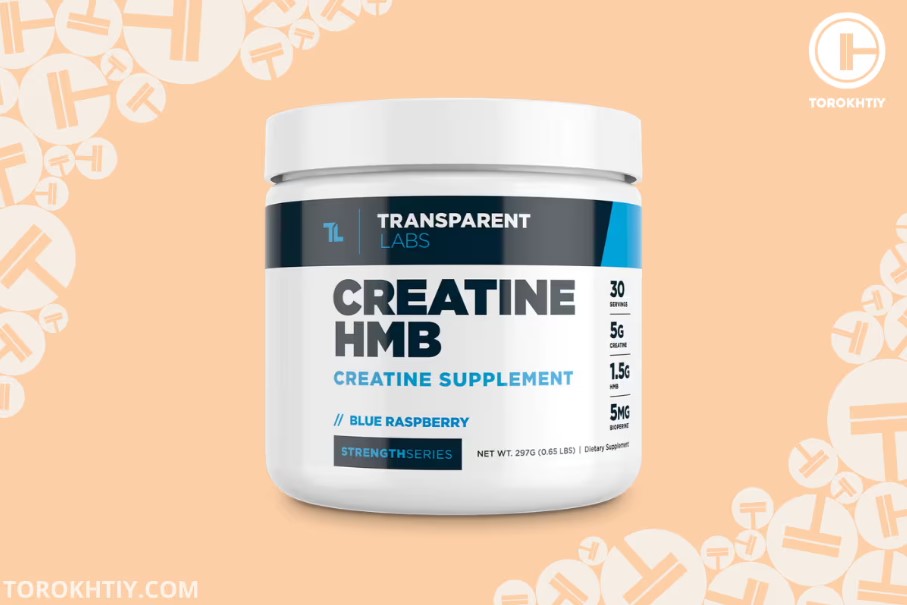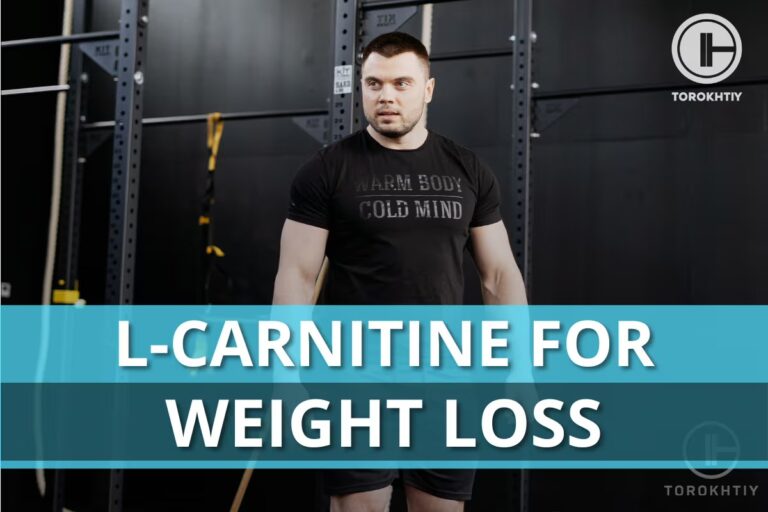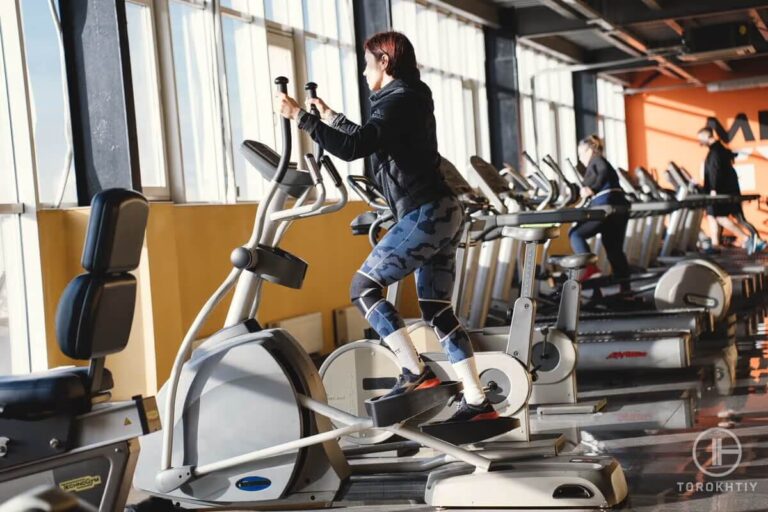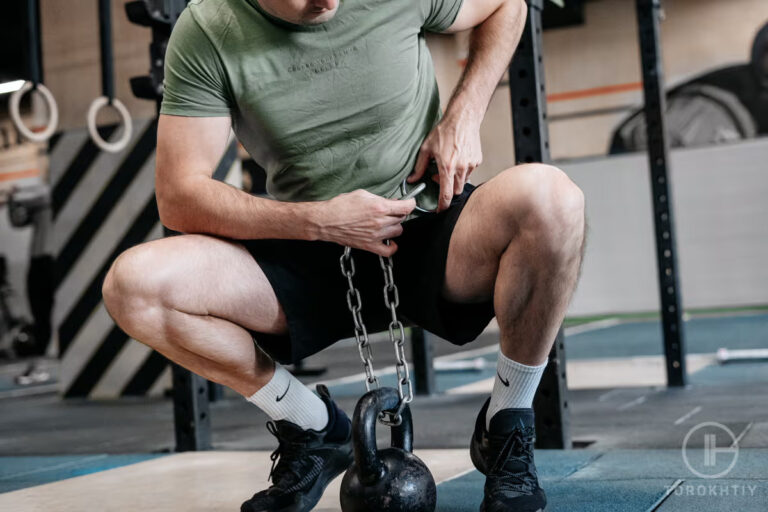Does Creatine Make You Stronger? Find Out Now
If you are an athlete or a fitness enthusiast, we are sure creatine is a go-to for you to improve your athletic performance as creatine has the potential to improve strength and muscle mass.
But in all honesty, does creatine make you stronger? We will talk about this in this article, You will learn the effects of creatine on strength growth and other factors that make creatine perform its function effectively.
Creatine increases phosphocreatine levels in the body causing a corresponding increase in ATP (a primary source of energy) production in muscle cells. By replenishing ATP stores faster, athletic performance improved due to increased strength. So, if you are wondering does creatine make you stronger, the straightforward answer is YES.
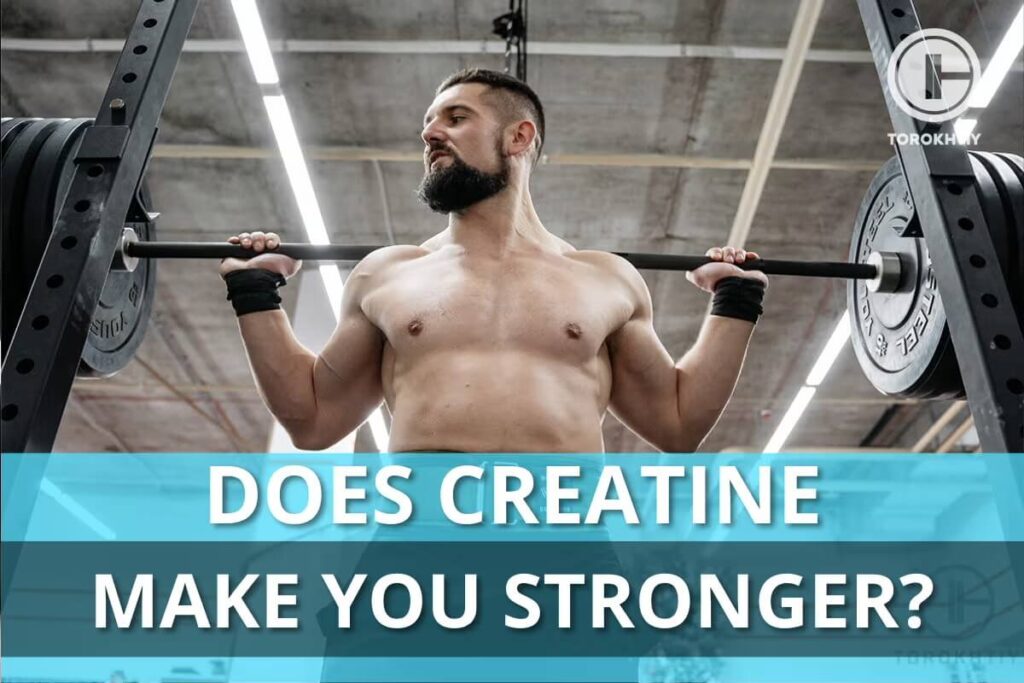
Does Creatine Make You Stronger?
You need not take our YES for a YES without any justification as it could be another hype. Now let’s delve deeper into what science says about creatine and getting stronger when you engage in intense exercise to justify our answer.
Creatine is a compound that can be found in small quantities in meat and fish. When you consume creatine it gets transported to your muscles. Then converted into phosphocreatine. This conversion allows phosphocreatine to serve as a source of phosphate groups which can be utilized to regenerate ATP. Sadly, the amount of ATP stored in your muscles is not so much and quickly gets depleted
Uptake of creatine supplements helps in elevating the levels of phosphocreatine in your muscles. It enables a replenishment of ATP while exercising. This eventually makes you maintain high-intensity exercise, for longer durations ultimately leading to amplified strength improvements, over time.
To be sure weather does creatine increase strength or not, numerous studies were carried out by scientists and the results are positive. Those results show that creatine helps improve strength, power, and strength endurance. Overall it makes you stronger than before.
A meta-analysis found that individuals who combined resistance training with the ingestion of creatine supplementation experienced significantly increased strength and performance.
One other question we often come across is does creatine make you stronger or just bigger? The simple answer to this is creatine will make you stronger and bigger in the long run. Firstly, creatine helps you in endurance and strength gain, it helps you gain muscle over time with more intense workout as a result your muscles tend to appear bigger.
More so, people sometimes might look plumpy when they start to take creatine. This change in look and body weight is caused by water retention because creatine draws water into your muscle cells.
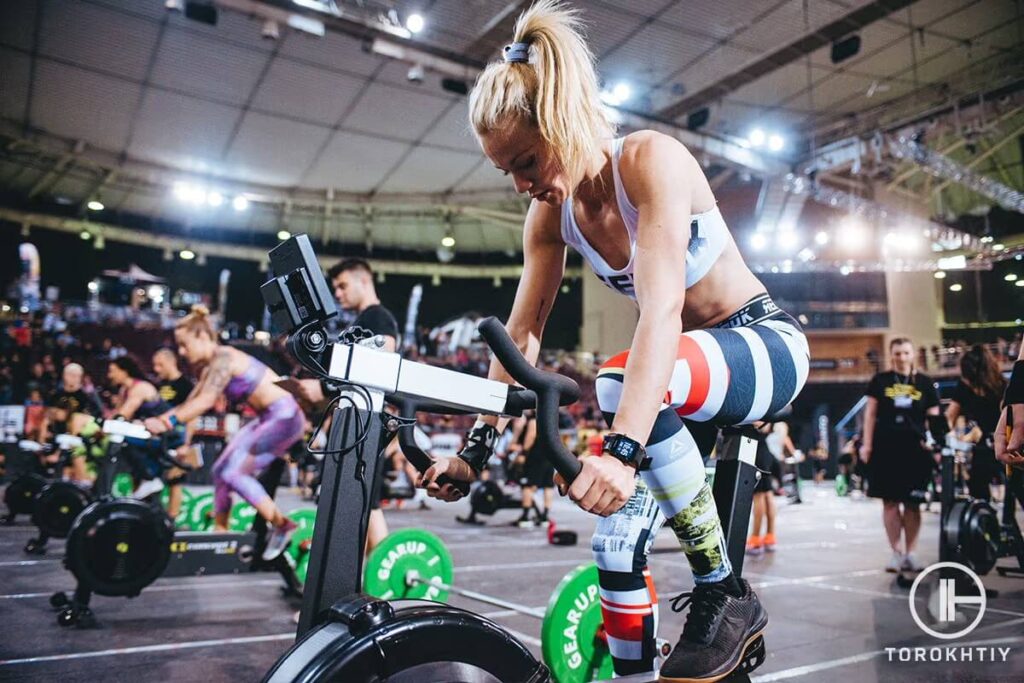
What Results Can Be Expected And What Can Affect The Magnitude Of The Effect?
Now that you have learnt that creatine will increase your strength but does creatine make a big difference? According to research published in the Journal of Strength and conducting research where a review of 22 studies was done, athletes, fitness enthusiasts, or any other creatine consumer (during resistance training) should expect a ~8% increase in muscle strength (1, 3, or 10 repetition maximum).
However, in terms of the magnitude of the effect one of the factors that affect the effectiveness of creatine supplements is muscle creatine uptake. Several factors are associated with creatine muscle uptake.
First is strength training. There’s an increase in muscle creatine uptake in an exercising individual as compared to non exercising individual meaning exercise is associated with increased muscle creatine uptake.
Also the kind of meals creatine is consumed with is a factor. Muscle creatine uptake is insulin mediated, so when creatine is consumed with protein, carbs, which creates a stronger insulin response, a larger increase in muscle creatine in response to supplementation could be obtained.
1. Responders Vs Non-Responders
Not everyone responds equally to creatine supplementation. Some individuals are considered “responders,” experiencing significant improvements in strength and muscle mass, while others are “non-responders,” seeing little to no effect even after using the recommended dosage in the right way. About 20-25% of people are not responders so it’s not a big deal.
However, the reasons behind this variability are still not understood totally, but It’s possible that factors like muscle fiber composition, and baseline creatine levels may play a role.
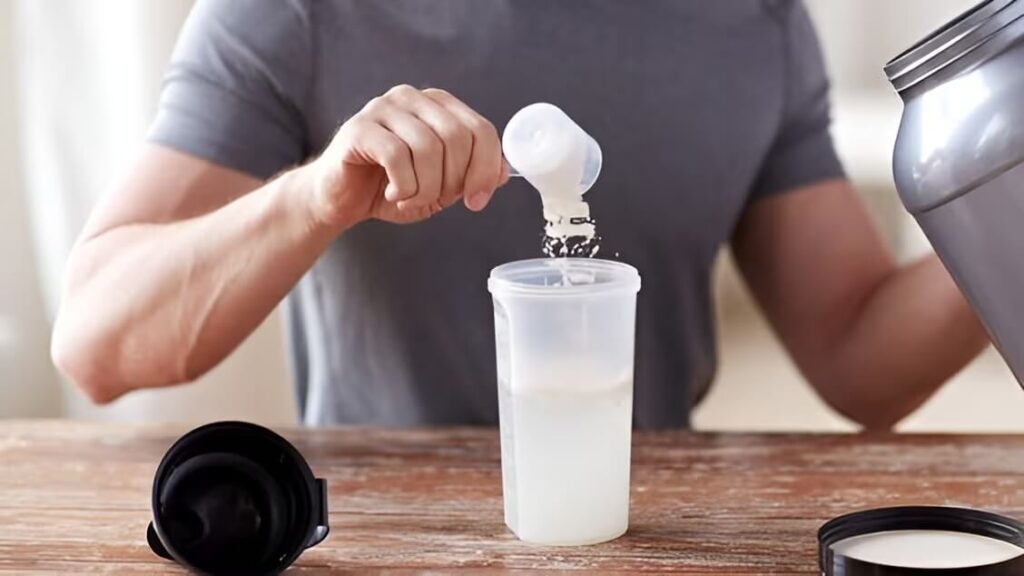
One factor that may contribute to the differences in response to creatine supplementation is muscle fiber composition. Our muscles are made up of different types of muscle fibers, namely slow-twitch (Type I) and fast-twitch (Type II) fibers.
Slow-twitch fibers are more resistant to fatigue and are primarily involved in endurance activities, while fast-twitch fibers are responsible for explosive movements and strength. Individuals with a higher proportion of fast-twitch fibers may be more likely to respond faster and better to creatine supplementation, as these fibers have a greater capacity for growth and strength gains as it stores creatine better than slow twitch fibers.
People with a lower proportion of Type ii fibers but a higher proportion of slow twitch fibers might not see a significant change as this fiber type do not store much creatine
The initial levels of creatine in one’s body can also impact how they respond to supplementation. Our muscles naturally contain amounts of creatine.
These levels can differ among individuals. If someone has lower baseline creatine levels they may experience noticeable improvements when they supplement with creatine because their potential for increasing muscle creatine stores is greater.
Conversely, individuals with higher baseline creatine levels may not see as much benefit from supplementation.
Overall, It’s crucial to remember that being a “non-responder” to creatine supplementation doesn’t mean that the supplement is ineffective or that you’re not getting something right.
People’s responses to creatine can vary significantly. Individual responses to creatine can vary widely, and many other factors contribute to strength gains and muscle growth.
Focusing on overall training and nutrition, including a well-rounded exercise program and a balanced diet, is crucial for reaching your strength goals, regardless of your response to creatine supplementation.
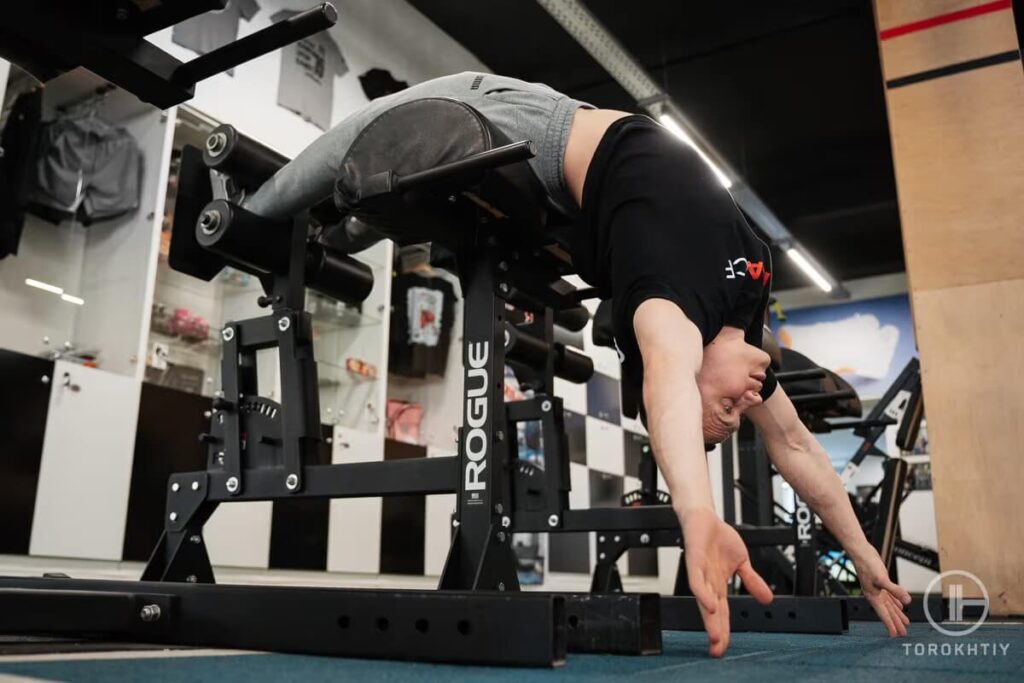
2. Vegans Vs Omnivores
So far there is general abstinence from foods like fish, meat, and poultry products there might be creatine deficiency in vegans. In a study where the concentration of creatine in blood, muscle, and brain is compared between vegan and omnivores, results show that creatine is lower in plasma, serum, and red cells of vegetarians as compared to omnivores. More so, results from tissue biopsies also show that creatine is lower in vegans muscle as compared to omnivores.
To balance this deficiency in vegans one topic that often arises in the issue of creatine supplementation is “How about vegans and can they benefit from this supplementation as well”. Remember creatine is naturally found in animal products.
The answer is a resounding yes. Vegan diets tend to have lower levels of creatine compared to omnivorous diets, thus creatine supplementation can provide significant benefits for vegans. Vegans who supplement with creatine can increase their creatine stores and potentially enhance their strength gains, just like omnivores who consume creatine naturally through animal products.
However, Vegans who are considering incorporating creatine supplementation into their routines should not be too bothered as this product is often synthesized from sarcosine and cyanamide. Additionally, it’s crucial to choose products that are free from any other animal-derived ingredients or by-products such as staying away from creatine in capsule form because gelatine used in the production of capsules is an animal by-product
With the growing popularity of veganism, there are now several creatine monohydrate options available in the market that clearly state their vegan-friendly status on the label.
Overall, while vegans may lack creatine, individuals who wish to become stronger can consider supplementing to boost their strength.

What Is the Best Way to Use Creatine for Best Results?
The most important thing when taking creatine is consistency and patience. Muscle creatine strength gains can be achieved by consuming 3-5 g of creatine daily (for lighter lifters 3 g will be enough, if you have more muscle mass, a dose of 5 g or more is better). It will take about a month for the supplement to saturate your muscles with creatine, so you need some patience. After that, you need to maintain muscle saturation by taking the same dose daily.
If for some reason you need to achieve muscle saturation with creatine faster, in 1-2 weeks, then you need a loading protocol, when you take about 20 g of creatine per day divided into few servings.
According to the Australian Institute of Sport (AIS) supplement framework, the recommended dose of creatine is better to take with meals because meals help to improve the absorption of creatine by the muscle and also have the potential to prevent any potential stomach discomfort.
Also, tying your creatine intake to one of your meals will help you form a supplementation habit and maintain a daily supplementation regimen during the maintenance phase of taking 3-5g of creatine each day.
The Creatine HMB We Recommend
Take a look at The StrengthSeries Creatine HMB supplement by Transparent Labs if you need a creatine supplement that will completely suit your fitness objective. One of the reasons that make the product a sought after is that it is made with a combination of BioPerine, beta-hydroxy beta-methylbutyrate (HMB), creatine monohydrate, and vitamin D. Keep reading to know what all this does to your body.
The StrengthSeries Creatine HMB comes with 5 g creatine per serving which is enough for your body. It contains zero preservatives and artificial sweeteners, it’s gluten-free. As safety is a must-consider when it comes to intestine supplementation, the product is third-party tested. More so, you don’t need to break the bank to get the product, each container comes with 30 servings at ~$ 1.68 per serving.
Furthermore, it contains a metabolite of amino acid leucine called HMB (1.5 g per serving) which possibly provides additive effects for creatine and helps to promote muscle protein synthesis, decrease muscle protein breakdown, prevent exercise induced muscle damage, and aid fast muscle recovery. We say possibly because data are actually mixed about HMB effects.
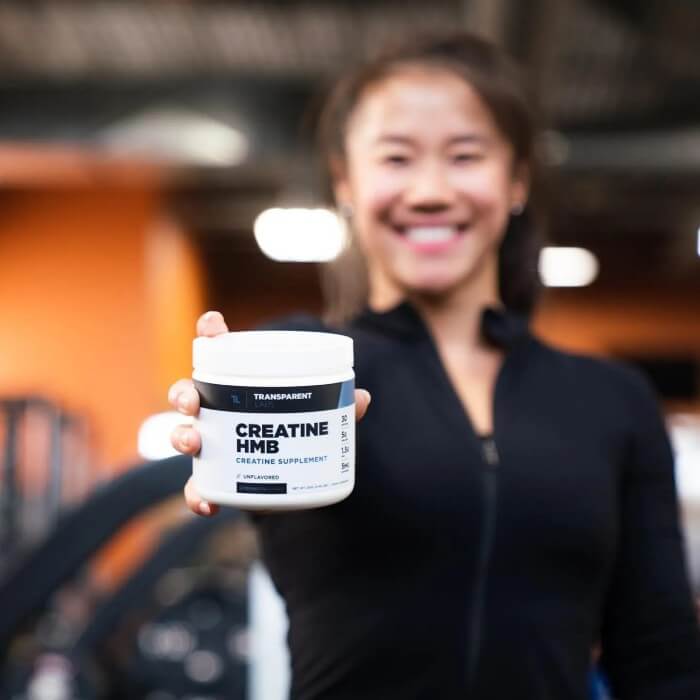
Transparent Labs also made this product with Vitamin D an essential nutrient that is essential in maintaining bone health by promoting calcium and phosphorus absorption. It also plays a vital role in immune and muscle function. 12.5 mcg of vitamin is obtained per serving which is equivalent to about 60% daily requirement by the body. Additionally, vitamin D is shown to aid muscle growth and improve mental alertness.
One other great component of this product is BioPerine. It has an active ingredient called Piperine, which has been demonstrated to increase nutrient absorption by inhibiting specific enzymes that break down these compounds in the gut and liver, it is frequently used as a bioavailability enhancer, which means it can improve the absorption and utilization of various nutrients and compounds in the body.
You can be sure that creatine will be absorbed adequately by the muscle to achieve your goal easily. So what else did you need in a creatine supplement that you haven’t gotten here? Surely, it is worth buying.
FAQ
Does Creatine Make You Big Or Lean?
Creatine supplementation can cause both, creatine makes you look bigger after ingesting for a few days because it causes your muscles to pull and retain more water, note that it’s not related to fat accumulation in any way. Likewise, it also helps with lean muscle gains in the long run.
Does Creatine Help You Lift More?
Yes, because it’s notable for its ability to help increase strength, endurance, and power. So you tend to lift more with the help of creatine.
Conclusion
Creatine is known for its ability to increase strength during exercise, it makes the consumer stronger especially when the recommended dose is consumed during meals. Users could get significant increase in strength when combined with exercise, but we respond to supplements differently
We hope you have gotten an answer to the popular topic of debate “Will creatine make you stronger or not?” You know creatine helps to increase strength, endurance, and power. Kindly share this article to others so they can also learn. Lastly, we will appreciate your valuable input in the comment section.
Also read:
- Best Form of Creatine
- How Much Creatine Hcl Should I Take per Day
- How Long Does Creatine Last
- Does Creatine Taste Bad
- Can You Take Creatine While Cutting
- Why Does Creatine Make My Stomach Hurt
- Difference Between Creatine and Glutamine
- Difference Between Creatine Nitrate and Monohydrate
- Does Creatine Make You Bloated
References:
- Robert Cooper, “Creatine supplementation with specific view to exercise/sports performance: an update”, PubMed, https://www.ncbi.nlm.nih.gov/pmc/articles/PMC3407788, Published online 2012 Jul 20
- Eric Rawson, “Effects of Creatine Supplementation and Resistance Training on Muscle Strength and Weightlifting Performance”, ResearchGate Logo, https://www.researchgate.net/publication/6727939, December 2003
- “Ais sports supplement framework CREATINE MONOHYDRATE”, AIS, https://www.ais.gov.au/__data/assets/pdf_file/0007/1000501/Sport-supplement-fact-sheets-Creatine-v4.pdf, Last updated March 2021
- A.Casey, “Does dietary creatine supplementation play a role in skeletal muscle metabolism and performance?”, PubMed, https://pubmed.ncbi.nlm.nih.gov/10919967/, 2000 Aug
- Demant, “Effects of creatine supplementation on exercise performance”, PubMed, https://pubmed.ncbi.nlm.nih.gov/10461712, 1999 Jul
- Mojtaba Kaviani, “Benefits of Creatine Supplementation for Vegetarians Compared to Omnivorous Athletes: A Systematic Review”, PubMed, https://www.ncbi.nlm.nih.gov/pmc/articles/PMC7246861/, Published online 2020 Apr 27
- A. E. Knitter, “Effects of β-hydroxy-β-methylbutyrate on muscle damage after a prolonged run”, Journal of apllied physiology, https://journals.physiology.org/doi/full/10.1152/jappl.2000.89.4.1340, 01 oct 2000
- “The Nutrition Source”, Harvard Chan Home, https://www.hsph.harvard.edu/nutritionsource/vitamin-d/, Last reviewed March 2023
- Christine Mikstas, “Black Pepper: Health Benefits, Nutrition, and Uses”, WebMD, https://www.webmd.com/diet/health-benefits-black-pepper, August 31, 2022
Why Trust Us?
With over 20 years in Olympic Weightlifting, our team does its best to provide the audience with ultimate support and meet the needs and requirements of advanced athletes and professional lifters, as well as people who strive to open new opportunities and develop their physical capabilities with us.
By trusting the recommendations of our certified experts in coaching, nutrition, dietology, and sports training programming, as well as scientific consultants, and physiotherapists, we provide you with thorough, well-considered, and scientifically proven content. All the information given in the articles concerning workout programming, separate exercises, and athletic performance, in general, is based on verified data. We ensure that you can rely on our professionals’ pieces of advice and recommendations that can be treated as personalized ones which will benefit you and fully meet your needs.
The product testing process is described in more detail here
Author: Jacek Szymanowski
Certified Nutritionist,
M.Sc.Eng. Biotechnology
Performance Architect,
Strength and Conditioning Specialist
With over 30 years of fighting experience, specialization in nutrition coaching for athletes, and expertise in metabolic health and dietary strategies, Jacek offers a comprehensive approach to optimizing your performance and well-being. Backed by a Master of Science degree in Biotechnology, Jacek remains at the forefront of scientific advancements, ensuring that his coaching is always evidence-based and up-to-date.

